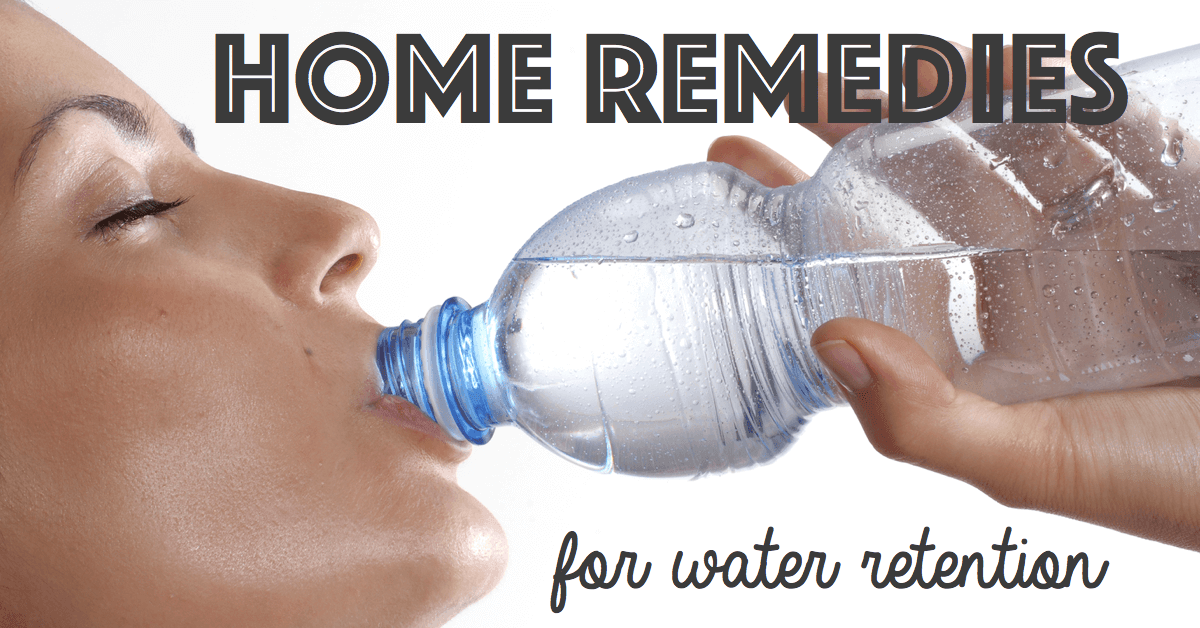10 Effective Home Remedies For Water Retention
Water retention is a medical condition that describes swelling that's caused by the accumulation of excess fluid in body tissues.
Symptoms of water retention include swelling of body parts such as ankles, feet and hands, weight fluctuations and a feeling of aching or stiffness. Home remedies for water retention can be used to cure most cases of water retention.
Normally, fluid in the body is drained out through the lymphatic system and waste products are removed from the body tissues. When the body tissues aren’t able to get rid of the excess fluid in the body, water retention occurs.
Causes Of Water and Fluid Retention
Water retention may occur due to various factors some of which include excessive intake of salt, the reaction of the body to humid weather, hormonal changes during pregnancy, menstrual cycle, menopause and side effects of using oral contraceptive pills among women. Most women who have fluid retention experience the feeling of being heavier and notice a change in the way their clothes fit. Water retention may also be caused by medical conditions such as hypothyroidism, nutritional deficiencies, and liver or heart disorders.[1]

Water retention that’s caused by general causes (and not any medical condition) can be easily treated with home remedies. However, it’s best to consult your doctor so that he or she can determine the cause of fluid retention in your body before you opt for home remedies. In some cases, medical intervention is absolutely necessary.
10 Effective Home Remedies For Water Retention
1. Minimize your salt intake
Although sodium is an essential mineral because it’s used to regulate the fluid levels in body tissues, excess intake of sodium may cause excessive fluid retention in the body tissues. Hence, avoid foods that contain high amounts of salt, such as potato chips.[2] You should also avoid processed foods such as tinned and canned meat and reduce the amount of salt you add to the food you eat.
2. Avoid dehydrating drinks such as alcohol and caffeine
Intake of too much alcohol and caffeine dehydrates the body. When your body is dehydrated, it begins to retain water.
3. Drink more water
This may sound strange but drinking more water could solve the water retention problem. If you are dehydrated, your body reacts by storing water so that it can cope with what it sees as a dry spell. Drinking more water also has the added benefit of helping you excrete more salt from your body. Ensure that you drink at least 8 cups of water every day.
4. Take adequate amounts of vitamin B6
If you have water retention before your period, for the five days before you menstruate take 100 mg of vitamin B6 every day. This vitamin is a diuretic – this means that it helps you to excrete more urine and as a result reduce the water content of your body. It will also help to balance your progesterone and estrogen levels. You can increase your intake of vitamin B6 throughout the month by eating more bananas, spinach, fish, chickpeas, poultry, and avocados.
5. Take adequate amounts of magnesium
Scientific studies have shown that women with PMS related water retention experience relief from water retention when they take supplemental magnesium. It also cures menstrual abdominal bloating. The suggested dose of magnesium is 200 to 400mg daily.[3]
6. Eat foods rich in potassium
One of the main causes of water retention is potassium deficiency. Without adequate amounts of potassium, your body will not be able to function properly. Potassium helps in ensuring that the sodium levels in the body are stable and also helps in flushing waste from the body tissues. Additionally, it helps cells, body tissues and organs function properly. When you don’t consume adequate amounts of potassium, you may suffer from water retention, swelling, and weight gain.
Foods such as bananas are high in potassium and can help to speed up the release of excess fluid from your body tissues. Other foods such as peaches, raspberries, raisins, apricots, and spinach, are also natural sources of potassium.
7. Eat Yogurt
Yogurt has high amounts of protein and many other nutrients. Since one of the main causes of water retention is a lack of protein, increasing the amount of protein your diet can help relieve the water retention problem. Yogurt has high levels of potassium and protein; hence it’s an excellent home remedy for water retention. If you don’t have yogurt at home, other good sources of protein include cottage cheese, fish, milk, and tofu.
8. Take natural diuretics
Intake of diuretics gets rid of excess water in your body. However, when you stop taking the medication, water retention may recur. Natural diuretics include cranberry juice, horsetail and dandelion leaf have a mild diuretic action and don’t lead to a recurrence of water retention.
9. Exercise regularly
Exercise has been scientifically proven to reduce water retention by getting rid of excess salt and water in the body through increased urine flow, sweating, and higher respiration.[4] Exercising regularly also improves blood flow and strengthens blood vessels.
10. Eat high fiber foods
Your body doesn’t digest fiber, and as a result, it passes intact through your small and large intestines. Eating foods that contain adequate amounts of fiber helps relieve water retention since the fiber absorbs a lot of water as it passes through the small and large intestines. Foods that contain high amounts of fiber include seeds, whole grains, beans, legumes, nuts, vegetables, and fruits.

